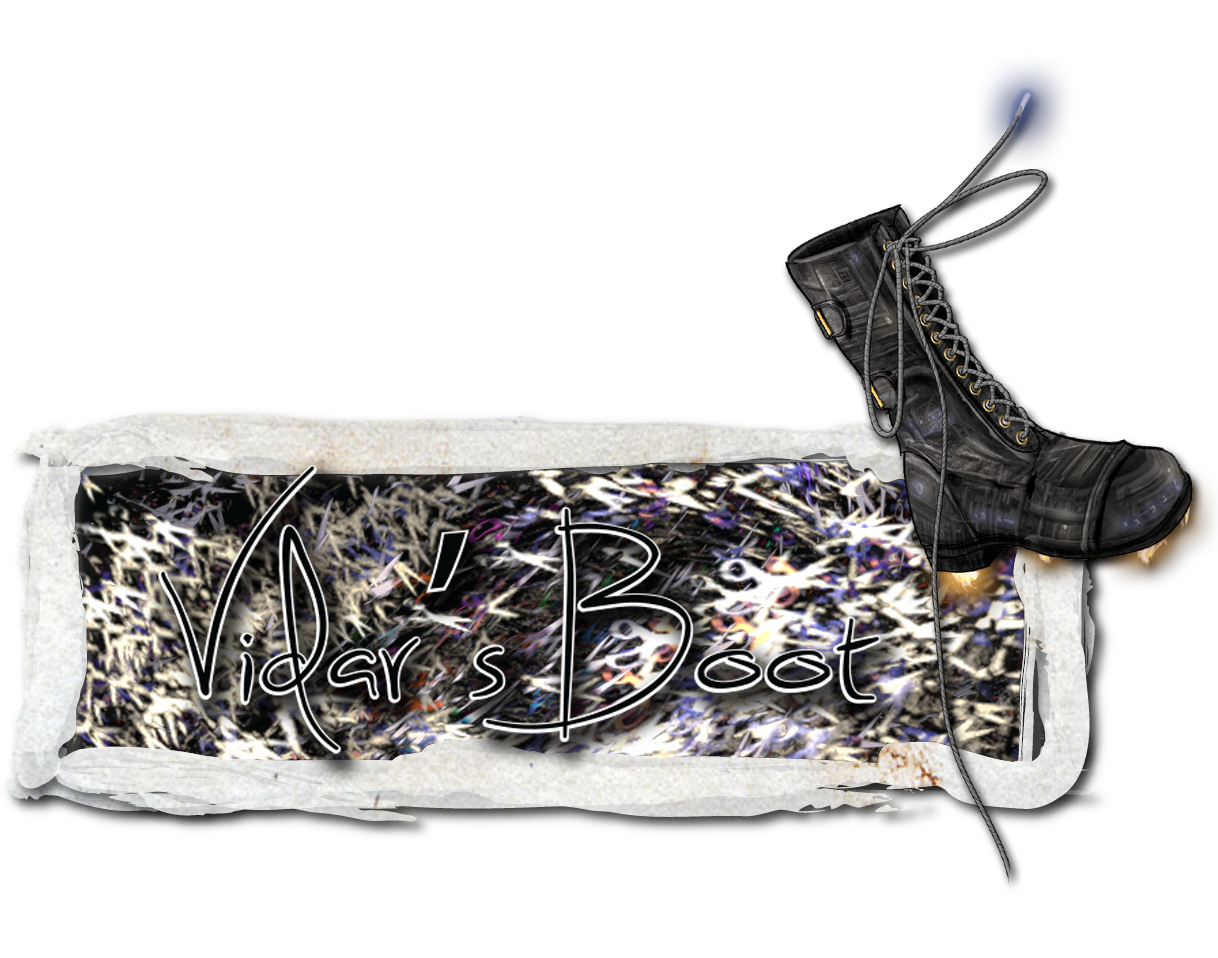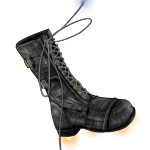– 2 –
Let’s go back a little further.
Jeremiah Sandiford is homesteading. It’s after the scissors-fall. He is sweeping the scissors away. He is cleaning a neighborhood in Respite, Kansas, in the hopes of legally claiming it after the scissors are gone.
He isn’t planning to become the god of a new millennium.
He isn’t planning to do anything strange.
He’s trying not to let all this shake him. He’s trying not to be afraid of the dead scissors — I mean, I guess all scissors are dead scissors, in a sense, but still — in their piles and drifts.
He’s trying not to freak out entirely, like most of humanity is trying not to freak out entirely.
He’d lived in a world of reason; calm; and of sanity, but that reason is starting to fray.
It’s not just the scissors, either. It’s not just sextillions of scissors suddenly falling from space. He cleans and he stares at them and every now and then he fills a barrel with the swept-up metal — it’ll be melted down. But it’s not just the scissors. There’s the Konami Thunder Dance, too. That’s not normal. Nor all the summoning. And there’s rumors of great snakes in the sea and of vast wolves.
It’s everything.
He feels like he’s floating. He feels like he’s drifting.
He doesn’t want this to happen.
He doesn’t think things this . . . uncleanly . . . ought to happen.
He doesn’t think that the world ought to be this way.
It’s the day Hans dies. There’s a vacancy.
And sunlight pierces through Jeremiah Sandiford like a spear.
It is shining in on him from all directions. It reflects in on him from the scissors and from the sky.
It pours in on him suddenly, all golden and all fierce.
Gold light congeals within him as a thought — not a thought of words, but a thought of intention. It wakes in him a lion of purpose, a lion of sacredness, a shining, burning magic that roars through him and is not touched anywhere by the shadow of despair.
It illuminates him.
It fills him with a thunder like the falling of a hammer; like the shattering of the gates of Hell.
He is shining, then, in that moment.
Sacredness pushes out the weakness of him. It falls from him like a shadow from his lip. Divinity tramps out the impurity of him like it is some vintner pressing grapes. He is thrilling to it, it is resounding through him, it is tuning him to its self.
He weeps whole, pure tears.
He sinks down onto his knees. He takes up a handful of broken scissors in his hands. He holds them before his heart, like they in their awfulness are sacred, and then he lifts them to his lips and he kisses them full-on, he is gentle but he is firm, and his lips are bleeding from it.
He says to them: “Bless you, who are my enemy, for you have given me my grace.”
Then he blows on them and they denature; they turn to dust; they fly away.
He is no longer Jeremiah Sandiford.
He rises, among the scattered scissors then, as Jeremiah Clean.
He rises and he stretches, he stands there like Atlas unleashed; unburdened, like a titan who has just now realized that there is no dome, there is no burden, there is only the great clean openness of the sky.
— and with that realization made it truth.
Jeremiah roars.
The world echoes with it; it shudders; everywhere there are those who hear that roar. Emily hears it. Eldri hears it. Linus Evans, a child in Sussex, hears it; he loses his innocence; he realizes in that moment that there is nothing good in all of life.
Then, like the settling hackles of a dog as it relaxes, the sacredness recedes from the cleaning man.
To be God — to make himself as God — that would be uncleanly. To make himself God, or King in America — that would in itself be a breach of reason. That would in and of itself represent a kind of scissors’ victory.
So he lives, does Jeremiah Clean, among us, as a man.
Just a man.
Just an ordinary man — save, his heart is pure.


